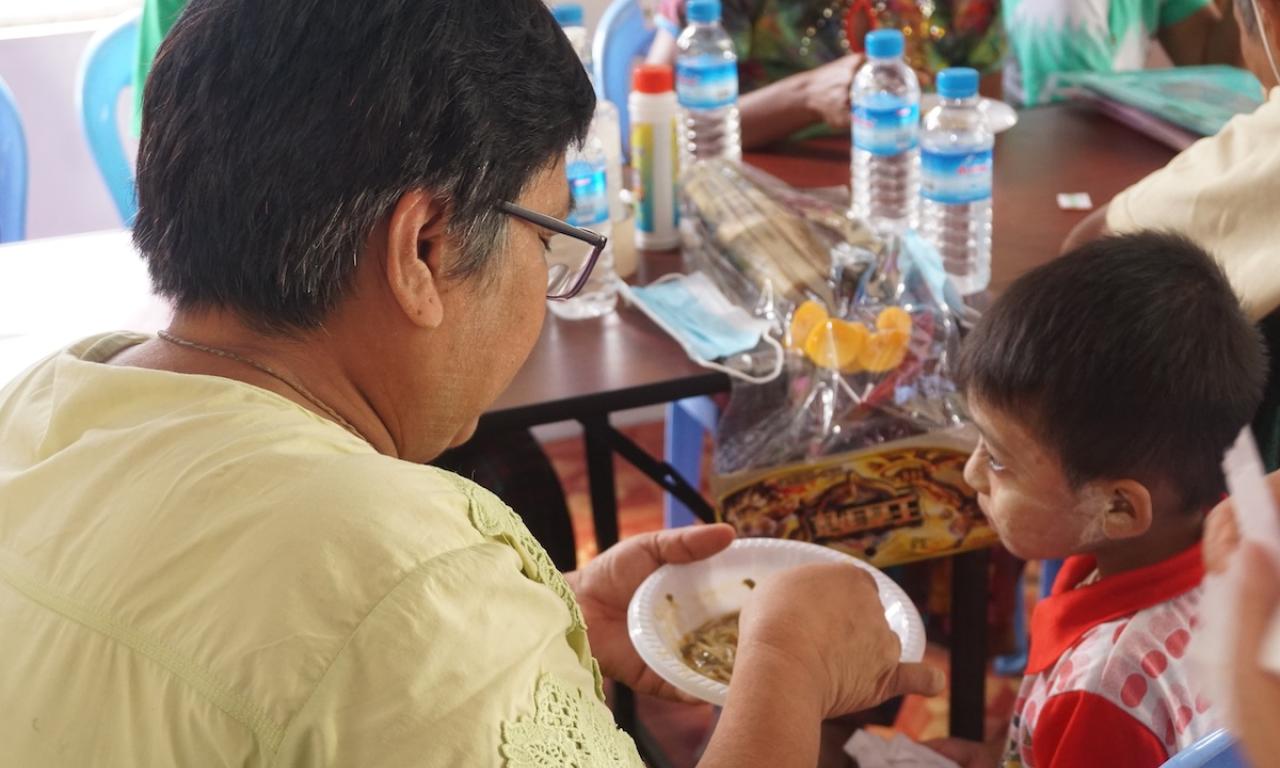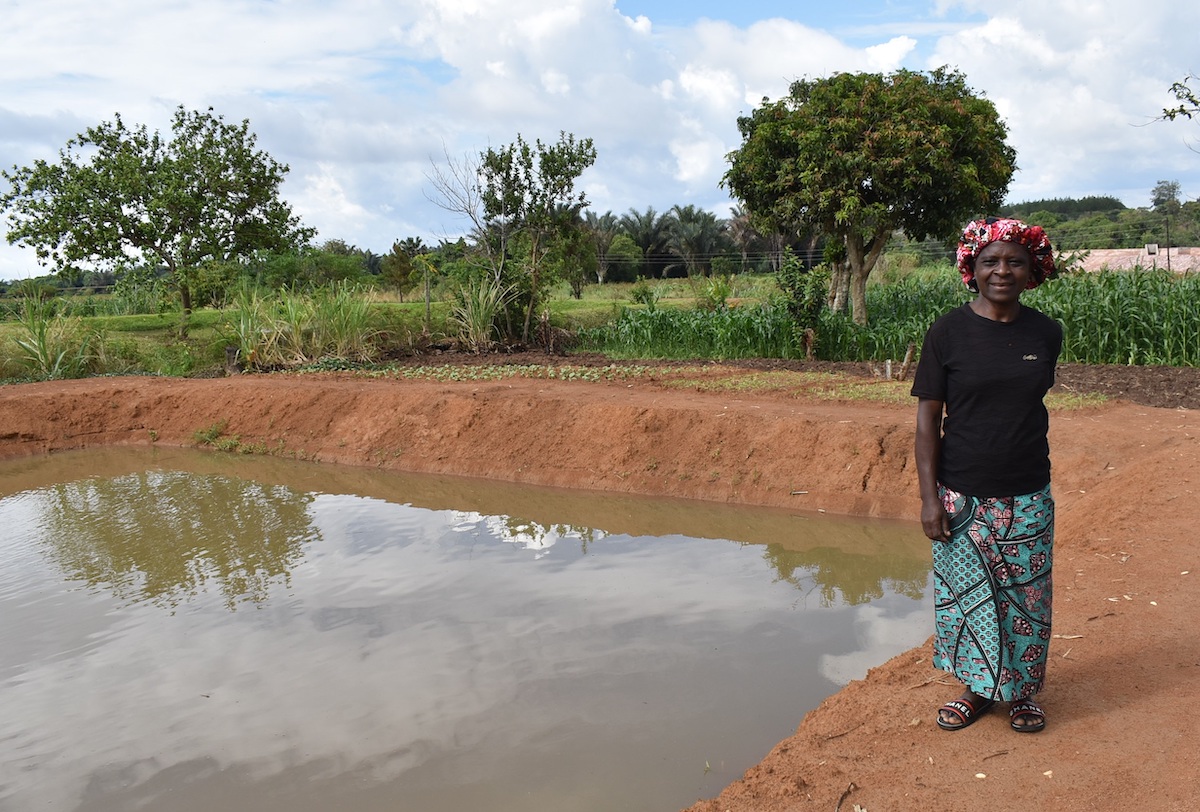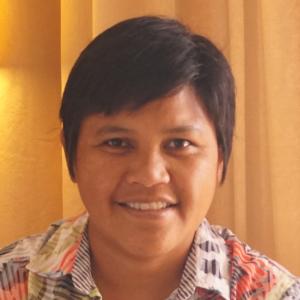
- Low- and middle-income countries, such as Myanmar and Zambia, face a double burden of malnutrition – the simultaneous presence of undernutrition and overnutrition within a population.
- WorldFish initiated the use of dried fish powder to enhance the nutrient composition of local food products consumed by young children and women of reproductive age to help alleviate the double burden of malnutrition in these two countries.
- The SPM project demonstrated success by creating innovative approaches through the production and marketing of food-based products relying on local solutions, increasing community resilience to climate change and shocks, as well as the political situation in Myanmar.
Low- and middle-income countries, such as Myanmar and Zambia, face a double burden of malnutrition, with their populations suffering from both undernutrition and overnutrition, resulting in health and developmental issues. To help alleviate malnutrition, WorldFish initiated the use of dried fish powder to enhance the nutrient composition of local food products consumed by young children and women of reproductive age through the Fish for Livelihoods Activity, funded by the United States Agency for International Development (USAID).
After months of testing with the support of a local consultant, the initiative was then taken up for the Seeding the Future Global Food System Challenge by the Institute of Food Technologists. Despite receiving over 800 entries, WorldFish’s Nutrient-rich small fish production, processing and marketing in Myanmar and Zambia (SPM) emerged as the inaugural grand prize winner.
Developing fish-based products suitable for local consumers

The project worked with a range of partners including the Zambian government, civil society, and private companies to manufacture, distribute, and promote affordable and highly nutritious fish-based nutrition solutions for underprivileged households, particularly women and children at risk of undernutrition and micronutrient deficiencies. The project developed nutritious fish-based products suited for local customers, such as cookies, chickpea balls, noodles and porridge, in partnership with local food companies in Myanmar and Zambia, resulting in improved nutrition.
The product “Happy Fish” is currently marketed in Myanmar by trained local sales agents, the majority of whom are women and youth.
“My 5-year-old son does not like eating fish but when I give him Happy Fish cookies, he eats them happily. I also add dried small fish powder to his rice, which he consumes without complaining. It makes me very happy to know that he is getting enough nutrients to grow healthily. I have since introduced the products to my neighbors and have seen sales increasing,” said Daw May Thinzar (not her actual name), a woman sales agent from Kengtung, Eastern Shan State.
Meanwhile, in Zambia, the project team trained women farmers on polyculture methods of farming indigenous small fish species (SIS) and pond dyke vegetable production to increase diet diversity. To ensure sustainability, the trained farmers will share their knowledge and supply SIS broodstock to other farmers in their communities.
“After learning about the nutritional benefits of SIS, a group of us decided to share it with mothers with children under the age of five, as well as pregnant women at health centers. We also demonstrated the preparation of dried fish powder from pond fish that is added to children’s porridge. As a result of this, several mothers have expressed an interest in owning their own ponds so they can easily access fish,” said Sarah Kunda, chairperson of the Katangwe Women’s Group in Mansa, Zambia.
Promoting the importance of nutritious aquatic foods

Furthermore, the project teams in both countries used various in-person and online communication platforms for dissemination activities emphasizing the importance of fish and other aquatic foods in diets. For instance, a cookbook was developed and the recipes were tested in the homes of randomly selected mothers.
“It is healthier than salt and monosodium glutamate (MSG). The smell is acceptable, and the taste of the dish is great because it is natural,” shared Ma Aye Nandar (not her actual name), a participant in one of the activities.
The SPM project demonstrated success by offering innovative approaches through the production and marketing of food-based products that rely on local solutions, boosting community resilience to climate change, shocks and the political situation in Myanmar. The project lays the groundwork for future projects that will benefit women and young children in the future.


